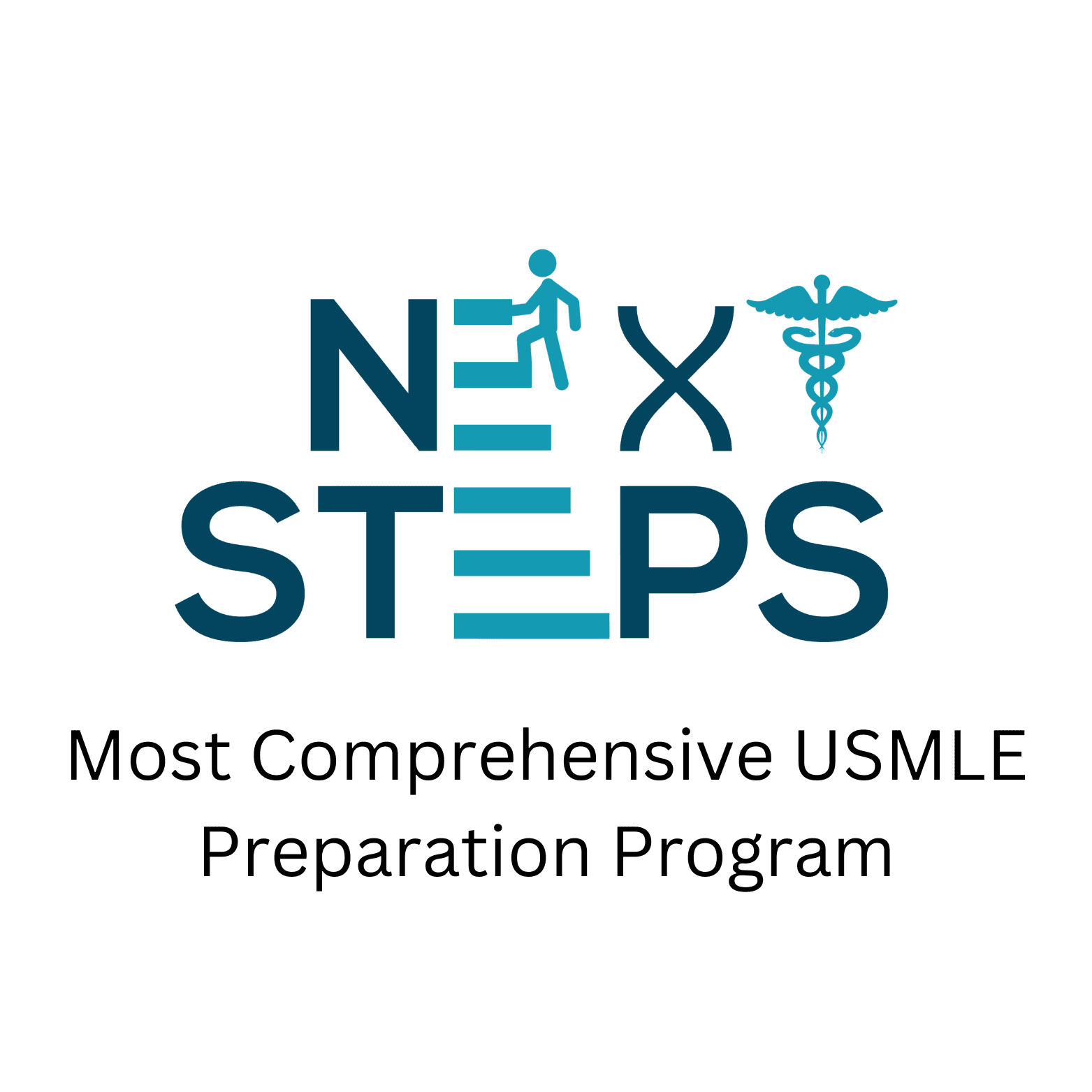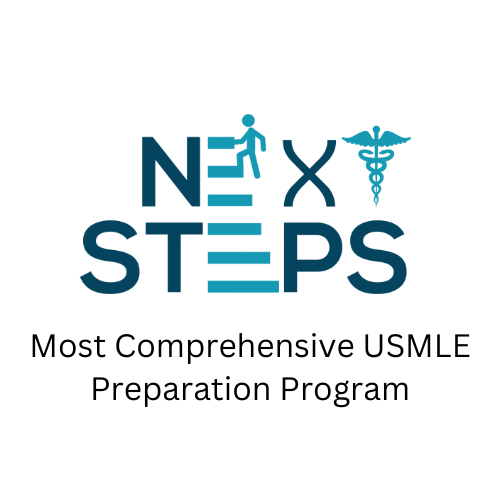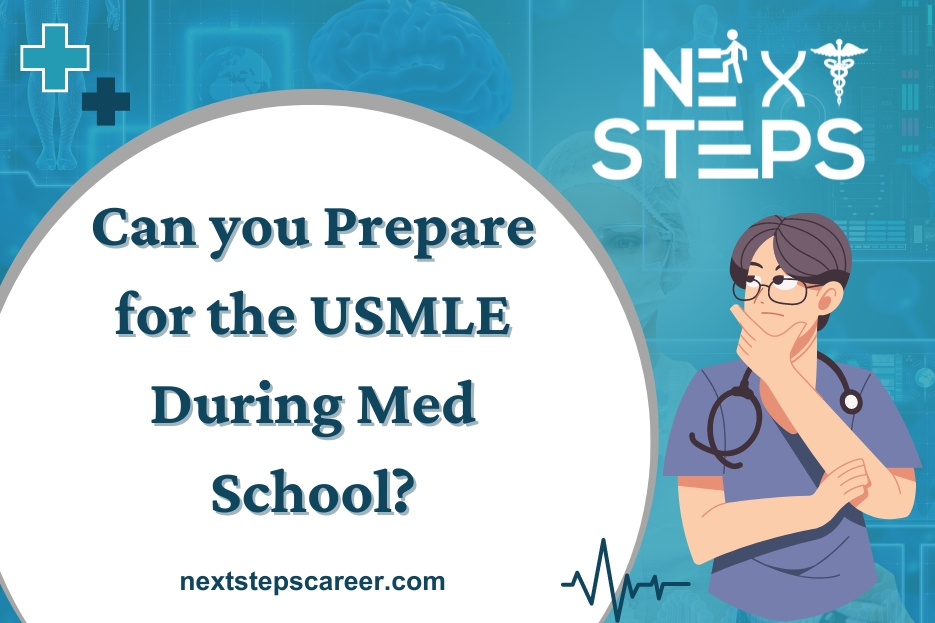For many medical students around the world, the United States Medical Licensing Examination (USMLE) is a significant milestone on the path to practicing medicine in the U.S. One common question that arises is whether it’s feasible to prepare for the USMLE while still completing a Bachelor of Medicine, Bachelor of Surgery (MBBS) degree. The answer is a resounding yes, but it requires strategic planning and dedication. This blog will explore how you can effectively prepare for the USMLE during your MBBS years.
Why Prepare for the USMLE During MBBS?
-
- Time Efficiency: Preparing for the USMLE during your MBBS allows you to integrate your study efforts, making efficient use of your time.
- Knowledge Retention: Studying for the USMLE alongside your MBBS coursework helps reinforce your knowledge and enhances long-term retention.
- Early Advantage: Early preparation can give you a significant advantage when it comes time to apply for residency programs, as you’ll have completed an important milestone.
Understanding the USMLE
The USMLE consists of three steps:
-
- Step 1: Focuses on basic sciences and is typically taken after the second year of medical school in the U.S.
-
- Step 2 CK (Clinical Knowledge): Tests clinical knowledge and is usually taken during the fourth year.
-
- Step 3: Assesses the ability to apply medical knowledge and is usually taken after the first year of residency in the U.S.
For MBBS students, the primary focus will be on Step 1 and Step 2 CK during medical school.
Strategies for USMLE Preparation During MBBS
-
- Integrate USMLE Study with MBBS Curriculum
Overlap Subjects: Identify subjects in your MBBS curriculum that overlap with the USMLE Step 1 and Step 2 CK syllabi. Subjects like anatomy, physiology, biochemistry, pathology, pharmacology, microbiology, and behavioral sciences are critical for Step 1.
Simultaneous Study: Use USMLE prep materials to supplement your MBBS textbooks. For example, while studying pathology, refer to resources like “Pathoma” and “First Aid for the USMLE Step 1” to align your learning with USMLE requirements. - Utilize High-Yield Study Resources
First Aid for the USMLE Step 1: This is a comprehensive guide that covers all high-yield topics and is considered an essential resource for Step 1 preparation.
UWorld: A question bank that mimics the format of the USMLE, providing practice questions and explanations. It’s invaluable for both Step 1 and Step 2 CK.
Next Steps Mentoring App: These provide in-depth coverage of USMLE topics by a personal mentor and can be used alongside your MBBS studies. - Create a Study Schedule
Plan Ahead: Map out your study schedule well in advance. Dedicate specific hours each week to USMLE preparation, ensuring it doesn’t interfere with your regular MBBS coursework and clinical rotations.
Balanced Approach: Aim for a balanced approach where you spend time both on MBBS subjects and USMLE preparation. For example, you could dedicate weekends or specific days to focus exclusively on USMLE materials. - Practice Regularly
Daily Questions: Incorporate daily practice questions from UWorld or other question banks to test your understanding and application of concepts.
Mock Exams: Periodically take full-length practice exams to assess your progress and identify areas that need improvement. This also helps build stamina and time-management skills for the actual exam. - Join Study Groups and Seek Support
Peer Study Groups: Form or join study groups with peers who are also preparing for the USMLE. Collaborative learning can help clarify difficult concepts and keep you motivated.
Mentorship: Seek guidance from seniors or mentors who have successfully navigated the USMLE. They can provide valuable insights and tips on effective study strategies. - Stay Organized and Manage Stress
Organized Notes: Keep your study materials and notes well-organized for easy revision. Digital tools and apps can help in managing and accessing your notes efficiently.
Stress Management: Balancing MBBS and USMLE preparation can be stressful. Practice regular physical activity, and mindfulness, and ensure adequate rest to maintain your well-being.
- Integrate USMLE Study with MBBS Curriculum
Example Study Plan
First and Second Years:
-
- Focus on basic sciences: anatomy, physiology, biochemistry.
-
- Use USMLE resources like First Aid and Kaplan Lecture Notes to complement your MBBS studies.
-
- Start light with 1-2 hours of USMLE prep per week.
Third Year:
-
- Intensify focuses on pathology, pharmacology, and microbiology.
-
- Increase USMLE study time to 3-4 hours per week.
-
- Begin using question banks like UWorld regularly.
Fourth Year:
-
- Dedicate significant time to clinical knowledge and patient management skills.
-
- Integrate Step 2 CK preparation with your clinical rotations.
-
- Aim for 5-6 hours of USMLE prep per week, including regular practice tests.
Conclusion
Preparing for the USMLE during your MBBS years is not only feasible but also advantageous. By integrating USMLE study with your MBBS curriculum, utilizing high-yield resources, and maintaining a disciplined study schedule, you can effectively prepare for the exams. This approach ensures that you are well-prepared for both your MBBS exams and the USMLE, positioning you strongly for a successful medical career in the U.S. Good luck with your preparation!





